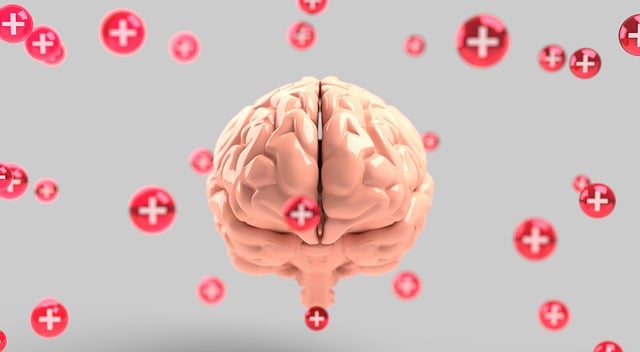Civil commitment proceedings are legal processes aimed at confining individuals with severe mental illness or intellectual disabilities who pose a danger to themselves or others, but do not meet involuntary hospitalization criteria. Initiating these proceedings requires demonstrating significant risk of harm through medical and psychological evaluations, along with clear evidence of dangerous behavior. Strategic defenses can challenge confinement by disputing threshold criteria or due process violations. Mental health professionals provide expert testimony, crucial for fair outcomes. Successful commitments necessitate comprehensive post-commitment care, including mental health services, social programs, and support networks to facilitate reintegration into society.
“Uncovering the intricacies of civil commitment strategies is paramount in ensuring fairness within our legal system. This comprehensive guide delves into the multifaceted world of civil commitment, offering a detailed overview for all stakeholders. From understanding the foundational elements of initiation to navigating defenses and leveraging expert testimony, each step is scrutinized.
We explore post-commitment care, emphasizing the holistic approach required to support individuals’ long-term well-being. By mastering these strategies, legal professionals can effectively guide clients through complex civil commitment proceedings.”
- Understanding Civil Commitment Proceedings: A Comprehensive Overview
- Key Elements and Requirements for Initiating Commitment Actions
- Exploring Defenses in Civil Commitment Cases: Legal Strategies and Rights
- The Role of Mental Health Professionals and Expert Testimony
- Post-Commitment Care and Support: Ensuring Continued Well-being
Understanding Civil Commitment Proceedings: A Comprehensive Overview

Civil commitment proceedings are legal processes aimed at confining individuals who pose a potential danger to themselves or others, but do not meet the criteria for involuntary hospitalization. Unlike criminal cases, these proceedings focus on public safety and mental health treatment rather than punishment. The process involves a thorough evaluation of an individual’s mental state, often by qualified healthcare professionals, to determine if they satisfy the legal standards for civil commitment.
This mechanism is typically triggered when a person exhibits severe mental illness or intellectual disability, leading to impaired judgment or inability to care for oneself. It provides a structured environment where individuals can receive necessary treatment and support while balancing their rights with public safety concerns. Understanding these proceedings is crucial, as they represent a critical aspect of the justice system, ensuring that vulnerable people receive appropriate care without compromising their freedoms.
Key Elements and Requirements for Initiating Commitment Actions

When initiating civil commitment proceedings, several key elements and requirements must be carefully considered and met to ensure a lawful and fair process. Firstly, the individual seeking commitment must demonstrate that the person in question poses a significant risk of harm to themselves or others, often evidenced through medical and psychological evaluations. These assessments should thoroughly examine the individual’s mental state, history of violence or self-harm, and any potential triggers for such behaviors.
Additionally, the petition for commitment should be supported by clear and convincing evidence, outlining specific instances or patterns of behavior that meet the legal standards for civil commitment. This may include documentation from healthcare professionals, law enforcement reports, or personal accounts detailing the individual’s dangerous conduct. The court will then review this information to determine if there is a basis for proceeding with the commitment action.
Exploring Defenses in Civil Commitment Cases: Legal Strategies and Rights

In civil commitment proceedings, exploring defenses is a crucial step in navigating legal complexities. Individuals facing such cases have certain rights and can employ strategic defenses to challenge their confinement. One common defense is arguing that the individual does not meet the threshold criteria required for civil commitment, which often involves demonstrating a lack of dangerousness or inability to care for oneself.
Another strategy focuses on due process violations, ensuring that the person’s rights during the proceedings are respected. This includes the right to legal representation, notice of the allegations, and an opportunity to present evidence. Effective defense attorneys can scrutinize the evidence, question witnesses, and raise legal arguments to protect their client’s interests and minimize the risks associated with civil commitment.
The Role of Mental Health Professionals and Expert Testimony

In civil commitment proceedings, mental health professionals play a pivotal role in providing expert testimony that guides the court’s decision-making process. These professionals are charged with conducting comprehensive evaluations of individuals sought to be committed, assessing their mental state, and offering insights into their present and future risks. Their expertise is crucial for navigating complex legal and clinical issues, ensuring fair and just outcomes.
The quality and reliability of expert testimony significantly impact the fairness of civil commitment proceedings. Mental health professionals must adhere to rigorous standards in their assessments, including thorough documentation and adherence to established diagnostic criteria. By providing clear, unbiased, and evidence-based testimony, they enable judges to make informed decisions, balancing public safety with individual liberties.
Post-Commitment Care and Support: Ensuring Continued Well-being

After successful civil commitment proceedings, providing comprehensive post-commitment care and support is paramount to ensure the continued well-being of individuals involved. This includes mental health services, therapy sessions, and social programs designed to reintegrate them into society. Access to education, vocational training, and employment opportunities can significantly enhance their prospects for a fulfilling life outside of confinement.
Support networks play a crucial role in facilitating this transition. Families, friends, community organizations, and mental health professionals must collaborate to offer ongoing guidance, encouragement, and practical assistance. Regular check-ins, counseling sessions, and support groups can help individuals navigate the challenges of reentry, foster stability, and promote resilience as they rebuild their lives within society at large.
